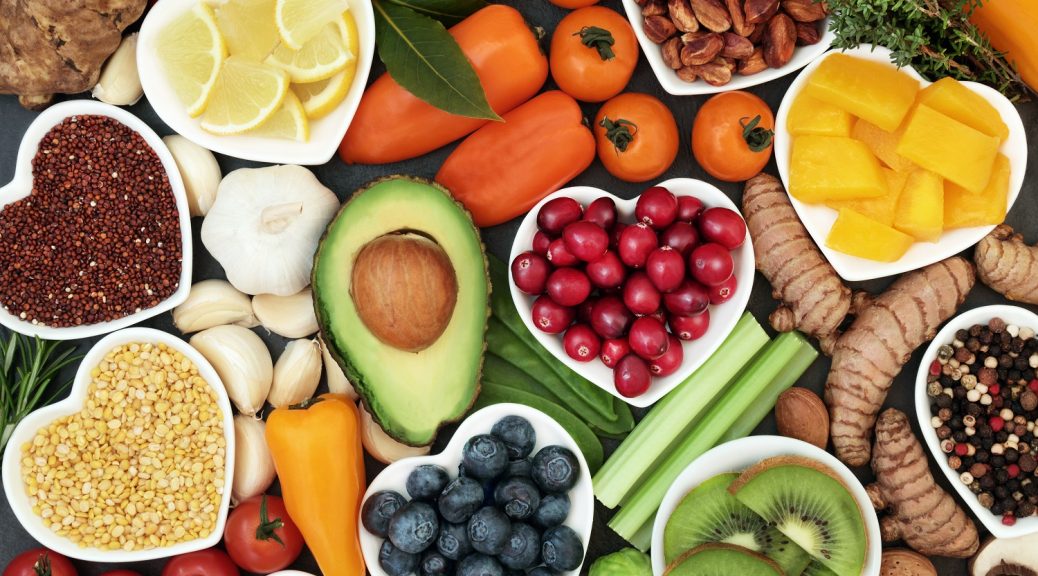
Fantastic Phytonutrients
We’ve come a long way since vitamins were first discovered. Now we know about a plethora of phytonutrients that are wonderful for health. Esther Mills-Roberts explains…
Nature is truly amazing. It’s health gifts to us are abundant, and they proudly proclaim it. Whether it’s fruits, herbs or vegetables, we can harness a whole host of useful health substances for our good. So, which phytonutrients should we be focusing on?
Grape Seed Extract and Pine Bark
Both grape seed and pine bark extracts contain proanthocyanidins which belong to the flavonoid family of phytonutrients. Research has shown that these help to strengthen the capillaries, which is why they are popular for thread veins and varicose veins. They’ve also been used for eye health, especially in older age. At this time of the year, increasing intakes through supplementation might help the skin counter the effects of harmful UVA and UVB radiation.
Foods with very high amounts of proanthocyanidins are cinnamon, sorghum, grape seeds, fruits, berries, peas, beans, red wine, and to a smaller degree, hazelnuts, pistachios, almonds, walnuts and cocoa.
Carotenoids
There are more than 600 carotenoids in our diet, characterised by yellow, orange and red pigments. Carotenoids help the body to tackle the effects of potentially harmful free radicals that can cause changes to cells, which can change their function. Research has shown that carotenoids can have a protective effect on skin, with supplementations of mixed carotenoids providing a sun protection factor of between two to four.
Yellow and orange foods, like carrots and pumpkins, are a great source of alpha and beta carotene which are great for the sun. Research shows that lycopene is good for prostate health and is often associated with tomatoes, but lycopene is also found in watermelon, pink grapefruit, red cabbage, papayas and asparagus.
Lutein and zeaxanthin are the eye health superstars, with research proving that they can help to reduce incidence of age-related eye conditions such as macular degeneration and cataracts. Rich sources in the diet are spinach, kale and collards. As well as including plenty of these in your diet, you could look out for eye health formulations, which often include other antioxidant nutrients such as vitamin C and vitamin E.
Green Tea
Green tea provides a vast array of antioxidant health substances and has been popular for centuries in China and India. Green tea is made from unoxidized leaves of the tea bush Camellia sinensis which makes it especially rich in polyphenols, to which it’s health benefits are attributed.
Studies show that the high levels of polyphenols in green tea help the body cells to maintain their proper function, which means that tissues and organs have the best chance of staying healthy. This is especially true of heart health, were green teas catechins and polyphenolic compounds have been found to be heart-helping, and it’s thought that consuming green tea (on a very regular basis) or as capsules can help with cholesterol metabolism.
Phytoestrogens
It’s amazing to think that plant compounds can work in the body to weakly mimic the effects of the natural body hormone oestrogen. Phytoestrogens exert their effects through binding to oestrogen receptors on cells, making them act in similar ways in the body.
Popular sources include soya, which is abundant in oriental diets, and red clover. Population studies in the Far East show that there is less prominence of hormonal conditions, including those during the menopause – which is what promoted researchers to investigate how soya could be reducing menopausal symptoms.
These days, soya isoflavones, the compounds within soya that are phytoestrogenic, can be taken within soya-containing foods, which must be consumed on a regular basis every day, or in supplementary form. There are plenty to choose from, and often include other nutrients which have been found to be useful during the menopause such as vitamin E, for vaginal dryness. Studies on soya isoflavones have also shown that they might be beneficial for bone health, which is also fantastic at this time in life.
About Esther Mills-Roberts
Esther Mills-Roberts is a degree-trained nutritional biochemist and registered nutritionist. She is the founder of www.allaboutnutrition.co.uk.
Esther studied nutrition and biochemistry at Nottingham University and worked for a number of nutritional supplement companies before eventually setting up as a consultant on nutritional marketing, PR, quality standard, labelling and new product development.
She has also lectured and educated many about the science of nutrition, written for a number of health titles, written her own books and has featured on both TV and radio. Esther is a member of the Guild of Health Writers, London.
